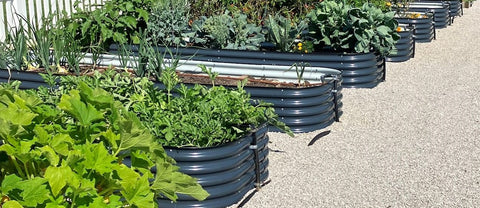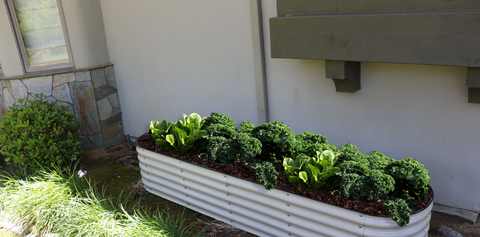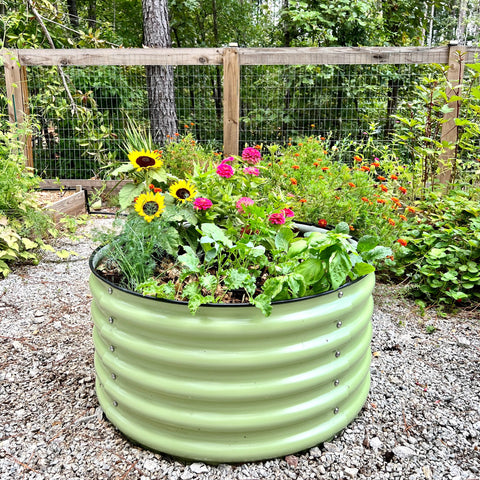Knowledge from Olle Garden Bed: Why Are Plants Important
They are versatile and can live indoors as decorations or in gardens as a food source for animals, insects and humans. Why are plants important? Plants are necessary to sustain life on this planet because they have oxygen-supplying properties and are a key link in the food chain. The world as we know it would not exist without plants, so there are many reasons to recognize why plants matter. The following content also has some reference value for raised garden beds.

Reasons why plants are important to us
Early plant life was originally photosynthetic marine material, which gave way to oxygen in the atmosphere and made life as we knew it possible. The importance of plants on Earth cannot be underestimated, so here are some reasons why plants are necessary for the world's environment.
- Oxygen production: The most obvious and important function of plants is to produce oxygen as a by-product of photosynthesis. This oxygen then mixes with other gases to form the air we breathe.
- Food sources: Plants provide many edible crops for human consumption and feed animals for human consumption.
- Medicinal properties: Many plant-produced compounds are studied, harvested, and synthesized for large-scale production of drugs. Many common medicines, such as aspirin and antimalarial drugs, are synthesized from plant compounds.
- Many plants are economically important: From fiber to wood to clothing and economically important food crops, the products we use every day are rich in plants.
- Air purification: For photosynthesis, plants will use the carbon dioxide we exhale to produce clean, breathable air.
- Mental Health and Wellness: Research shows that green spaces and being in nature can significantly affect human mood and well-being.
- Ecosystem health: How can plants help the environment? In addition to oxidative properties, key plant species anchor ecosystems by providing abundant food sources and shelter sources for other life in the area; If their role disappears, the entire ecosystem could be thrown out of balance, potentially with harmful effects.
- Climate-healthy: Large trees and plant materials undergo "carbon sequestration", which means that they themselves contain large amounts of carbon. Damage to forests and other carbon stocks can have a significant impact on the atmosphere. Maintaining these forests ensures that carbon is "locked" within plants to protect our atmosphere.
- Contribution to the water cycle: When plants absorb water, it does not remain in the system forever; Instead, it evaporates from the leaves, sends it back into circulation by being absorbed by the clouds, and is eventually reactivated by rainwater.
- Maintain soil health: Plant roots can help anchor soil in rocky or turbulent terrain and provide a way to recover and replenish soil nutrients.

How can plants help improve human health?
How do plants make them so important for human health, and how can plants improve human health? Medicine, food, and even our mental health can all be attributed to sustaining humanity as the two begin to coexist.
- The medicinal development and medicinal use of plant material began with the knowledge of the plants of their region by many indigenous peoples. This knowledge was subsequently applied to many Western medicines, although the traditional uses of these plants are still widespread worldwide.
- Plants can reduce anxiety, stress, and depression in people in more natural scenes and around greenery.
- Plants clean the air of carbon dioxide and other pollutants that can adversely affect human health.
The importance of plants for children
Children can learn a lot from plants to help them become more responsible and empathetic as adults. Caring for plants requires working hard to ensure they have what they need to stay healthy, just as people need water, food, and nutrients to perform to their fullest capacity.

Children may also wonder, "Why do we need plants?" "By giving them first-hand experience, they will be able to understand how everything depends on each other to work properly." When children understand how many plants are used in their daily lives, it also helps keep them connected to the planet. From edible foods grown in the backyard to learning about the importance of plants and their pollinators, plants can be very useful tools to teach children useful skills, confidence, and how to best interact with the world around them.
